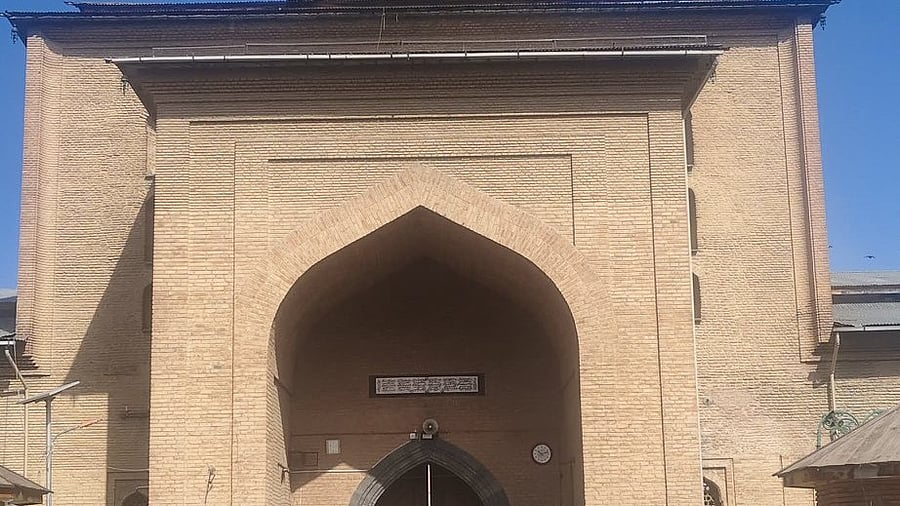
Jamia Masjid in Srinagar
Credit: X/@MirwaizKashmir
Srinagar: Authorities disallowed prayers at the historic Jamia Masjid in Srinagar on the revered night of Shab-e-Qadr, a night when Muslims worldwide engage in supplication and seek Allah’s forgiveness.
The restriction also extends to Friday congregational prayers, coinciding with Jumatul Vida, the last Friday of the holy month of Ramzan.
Shab-e-Qadr, also known as the “Night of Power,” is considered the most sacred night in Islam, with believers praying fervently throughout the night for divine mercy and blessings. Similarly, Jumatul Vida is a significant day in Ramzan, when Muslims gather for special prayers before the conclusion of the fasting month.
The decision to disallow prayers at Jamia Masjid prompted widespread outrage with Kashmir’s chief cleric Mirwaiz Umar Farooq questioning authorities over curbs on ‘religious freedom and repeated targeting’ of Kashmir’s central mosque.
“After Shab-e-Qadr, Jama Masjid Srinagar continues to remain closed to people and I under house detention, even today on Juma-Tul-Vida, when lakhs of people eagerly await the whole year to offer congregational prayers on this blessed Friday for great reward and blessing from Allah,” he posted on X.
Questioning the authorities further, he asked, “Want to ask the authorities why is this most important centre of Kashmir’s religious identity and affinity repeatedly targeted and peoples fundamental right to religious practice curbed, when tall claims of normalcy are trumpeted every day? Those ruling in peoples name cannot absolve themselves from standing up to address this gross injustice towards Muslims of the valley and the repeated closure of #JamaMasjid."
Opposition People’s Democratic Party president, Mehbooba Mufti, also condemned the closure, calling it yet another example of “collective punishment” imposed on Kashmiris.
“The government which claims & celebrates that it has eradicated separatism persists in viewing every Kashmiri as a potential separatist. Their false narrative of having restored total normalcy is exposed when a historic mosque is closed off to worshippers on a night so deeply cherished by all,” she posted on X.
In February, authorities had also barred prayers at Jamia Masjid on Shabe Barat, or the “Night of Forgiveness,” which is observed on the 15th night of Sha’ban, the eighth month of the Islamic lunar calendar. This move was met with strong criticism, including from Jammu and Kashmir Chief Minister Omar Abdullah, who denounced the action as an unwarranted restriction on religious freedom.
Even the Kashmiri Pandit Sangharsh Samiti, representing Kashmiri Pandits in the region, criticized the closure of the mosque, questioning whether this was the “normalcy” promised in Jammu and Kashmir.